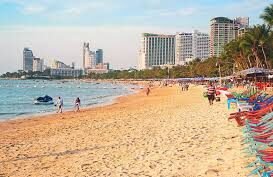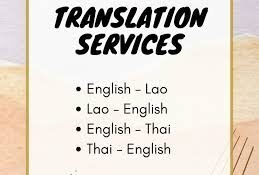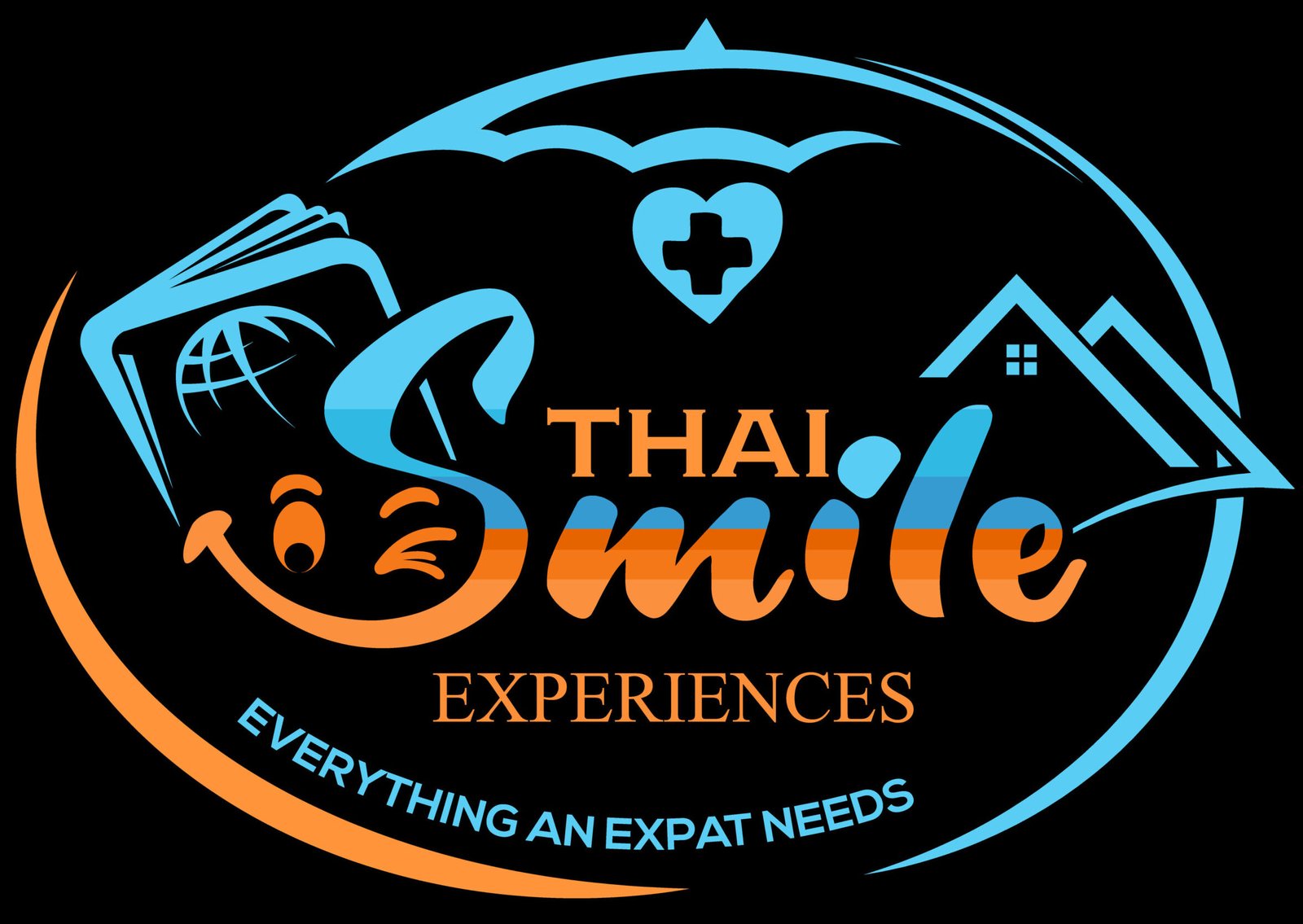FAQ
You can learn more from our asked questions
Listed below under different sections are FAQ about our services. Scroll down and take a look at our extensive services and information.
Thai Smile Experiences
We are a business that offers services and information to mainly Expats to help them enjoy the beauty of Thailand hassle free. We offer extensive online information via our subscription service or one on one personalised service.
We offer via our subscription service extensive information about living in Thailand. The main areas which we concentrate on however is Visa’s, Health and General Insurance and local activities mainly around Hua Hin and surrounding provinces.
You can subscribe or contact us direct for one on one interaction.
We try and offer a one stop shop for your Expat needs. Operated by a Thai National with extensive experience and qualifications makes a huge point of difference.
You certainly can!
Thai Smile Insurance
We are specialists in General, Life and Health Insurance.
General insurance covers a wide range of risks, including property damage, liability, health emergencies, and more. It's designed to protect against unforeseen events that could cause financial loss.
Eligibility can vary depending on your residency status, visa type, and local regulations. Some insurance providers offer specific plans tailored to expats, while others may require additional documentation or proof of residence.
Many general insurance policies have limitations on coverage outside the country of residence. Expats should check whether their policy includes international coverage or if they need to purchase additional travel insurance for trips abroad.
Coverage for pre-existing conditions can vary among insurance providers. Some policies may exclude pre-existing conditions, while others may offer coverage with certain limitations or waiting periods. It's essential to review the policy terms carefully.
Deductibles are the amount you must pay out of pocket before your insurance coverage kicks in, while premiums are the regular payments you make to maintain your coverage. The amount of the deductible typically affects the premium cost, so expats should consider their budget and risk tolerance when choosing a policy.
Many insurance providers offer customizable policies that allow you to tailor coverage to your individual needs. This might include options for higher coverage limits, additional riders for specific risks, or flexible payment schedules.
The claims process can vary depending on the insurance provider and the nature of the claim. Expats should familiarize themselves with the claims procedure outlined in their policy documents and ensure they have necessary documentation, such as proof of loss or medical receipts, when submitting a claim.
Will my general insurance cover me for loss or damage to my personal belongings while living abroad?
Personal property coverage is typically included in general insurance policies, but the extent of coverage may vary. Expats should review their policy to understand the limits and exclusions related to personal belongings and consider additional coverage if needed.
Liability insurance protects you financially if you're held responsible for causing injury or property damage to others. It's a valuable coverage for expats, especially if they own property or operate a business in their host country.
When comparing policies, expats should consider factors such as coverage limits, exclusions, deductibles, premiums, claims process, customer service reputation, and any additional benefits or discounts offered by the insurer. It's essential to choose a policy that provides adequate coverage for your specific circumstances and offers peace of mind while living abroad.
Thai Smile Visa Services
Tourist Visa (TR): Non-Immigrant Visa (B): Elite Visa: Education Visa (ED): Marriage Visa (O): Business Visa (B): Transit Visa (TS): Diplomatic and Official Visas:
Applying for a Thai visa from your home country typically involves a straightforward process. Here are the general steps to apply for a Thai visa:
Determine the type of visa you need: First, decide on the type of visa that best suits your purpose of travel to Thailand. As mentioned earlier, there are various visa categories, including tourist, non-immigrant, education, retirement, and others.
Check visa requirements: Visit the official website of the Royal Thai Embassy or Consulate in your home country to find the specific requirements for the type of visa you wish to apply for. Each visa category may have different documentation and eligibility criteria.
Complete the visa application form: Obtain the appropriate visa application form, which is usually available on the embassy or consulate's website. Fill it out accurately and completely.
Gather supporting documents: Prepare all the required supporting documents as per the visa category. Common documents may include a valid passport, passport-sized photos, flight itinerary, hotel reservations, financial statements, invitation letters, educational transcripts, etc. Check the specific requirements for your visa type.
Schedule an appointment: Some embassies or consulates require you to schedule an appointment to submit your visa application and supporting documents. Make sure to follow the appointment procedures provided on their website.
Attend the visa interview (if required): Depending on your visa type and the embassy's policy, you may need to attend an interview. Be prepared to answer questions related to your travel plans and intentions.
Pay the visa fee: Visa fees vary based on the type and duration of the visa. Check the current fee on the embassy or consulate's website and pay it as instructed.
Submit your application: Attend the scheduled appointment (if applicable) and submit your visa application along with all the required documents and fees.
Determine the type of visa you need: First, decide on the type of visa that best suits your purpose of travel to Thailand. As mentioned earlier, there are various visa categories, including tourist, non-immigrant, education, retirement, and others.
Check visa requirements: Visit the official website of the Royal Thai Embassy or Consulate in your home country to find the specific requirements for the type of visa you wish to apply for. Each visa category may have different documentation and eligibility criteria.
Complete the visa application form: Obtain the appropriate visa application form, which is usually available on the embassy or consulate's website. Fill it out accurately and completely.
Gather supporting documents: Prepare all the required supporting documents as per the visa category. Common documents may include a valid passport, passport-sized photos, flight itinerary, hotel reservations, financial statements, invitation letters, educational transcripts, etc. Check the specific requirements for your visa type.
Schedule an appointment: Some embassies or consulates require you to schedule an appointment to submit your visa application and supporting documents. Make sure to follow the appointment procedures provided on their website.
Attend the visa interview (if required): Depending on your visa type and the embassy's policy, you may need to attend an interview. Be prepared to answer questions related to your travel plans and intentions.
Pay the visa fee: Visa fees vary based on the type and duration of the visa. Check the current fee on the embassy or consulate's website and pay it as instructed.
Submit your application: Attend the scheduled appointment (if applicable) and submit your visa application along with all the required documents and fees.
The process for extending a Thai visa while you are already in Thailand can vary depending on the type of visa you hold. Here are the general steps for extending most common types of visas:
Check your visa type: Make sure your current visa is eligible for extension. Some visa categories, such as tourist visas, may be extended, while others, like visa-exempt entries, may not be extendable.
Prepare required documents: Gather all the necessary documents for your visa extension. Typical requirements include:
Passport with remaining validity of at least 6 months
Current visa or entry stamp
Passport-sized photos
Completed visa extension application form (TM.7)
Proof of sufficient funds (bank statements)
Proof of address in Thailand (e.g., rental agreement or hotel booking)
Any other documents specific to your visa category (e.g., educational transcripts for student visas, marriage certificate for marriage visas, etc.)
Visit the Immigration Office: Go to the nearest Immigration Office in Thailand. The main Immigration Office is usually located in the capital city, Bangkok, but there are several regional immigration offices throughout the country where you can apply for an extension.
Submit your application: Present all the required documents to the immigration officer. They will review your application and documents.
Pay the visa extension fee: Pay the fee for your visa extension. The fee can vary depending on the visa type and the length of the extension.
Get your visa extension: If your visa extension is approved, the immigration officer will stamp the new extension in your passport, indicating the new expiration date.
Keep track of your visa validity: Note the new visa expiration date, as you will need to apply for further extensions if you plan to stay in Thailand longer.
Check your visa type: Make sure your current visa is eligible for extension. Some visa categories, such as tourist visas, may be extended, while others, like visa-exempt entries, may not be extendable.
Prepare required documents: Gather all the necessary documents for your visa extension. Typical requirements include:
Passport with remaining validity of at least 6 months
Current visa or entry stamp
Passport-sized photos
Completed visa extension application form (TM.7)
Proof of sufficient funds (bank statements)
Proof of address in Thailand (e.g., rental agreement or hotel booking)
Any other documents specific to your visa category (e.g., educational transcripts for student visas, marriage certificate for marriage visas, etc.)
Visit the Immigration Office: Go to the nearest Immigration Office in Thailand. The main Immigration Office is usually located in the capital city, Bangkok, but there are several regional immigration offices throughout the country where you can apply for an extension.
Submit your application: Present all the required documents to the immigration officer. They will review your application and documents.
Pay the visa extension fee: Pay the fee for your visa extension. The fee can vary depending on the visa type and the length of the extension.
Get your visa extension: If your visa extension is approved, the immigration officer will stamp the new extension in your passport, indicating the new expiration date.
Keep track of your visa validity: Note the new visa expiration date, as you will need to apply for further extensions if you plan to stay in Thailand longer.
As of my last update in September 2021, the standard tourist visa for Thailand is known as the "Tourist Visa" (TR) or "Tourist Visa Exemption." Here are the details regarding the duration of stay and extension possibilities for each type:
Tourist Visa (TR): The Tourist Visa allows you to stay in Thailand for up to 60 days per entry. It is typically issued for either single or multiple entries, depending on the embassy or consulate's discretion.
Visa Exemption: Some nationalities are eligible for visa exemption, which allows them to enter Thailand without obtaining a visa for short stays. Visa-exempt entries are usually granted for 30 days when entering the country by air and 15 days when entering by land.
Extension of Stay:
Both the Tourist Visa (TR) and Visa Exemption can be extended within Thailand under certain conditions:
Tourist Visa (TR) Extension: If you are on a Tourist Visa (TR) and wish to extend your stay beyond the initial 60 days, you can apply for an extension at the nearest Immigration Office in Thailand. You can extend your visa for an additional 30 days, making the total stay up to 90 days.
Visa Exemption Extension: If you entered Thailand under the Visa Exemption program and want to stay longer, you can apply for a 30-day extension at the Immigration Office. The extension will give you a total of 45 days if you entered Thailand by land or 60 days if you entered by air.
It's essential to apply for a visa extension before your current visa or visa-exempt entry expires to avoid overstaying, as this can result in penalties, fines, and other consequences.
Keep in mind that visa policies can change, and there might be new visa options or different regulations beyond my last update. Always verify the latest information on visa rules and extension procedures from the Royal Thai Embassy or Consulate in your home country or the Thai Immigration Bureau before planning your trip to Thailand.
Tourist Visa (TR): The Tourist Visa allows you to stay in Thailand for up to 60 days per entry. It is typically issued for either single or multiple entries, depending on the embassy or consulate's discretion.
Visa Exemption: Some nationalities are eligible for visa exemption, which allows them to enter Thailand without obtaining a visa for short stays. Visa-exempt entries are usually granted for 30 days when entering the country by air and 15 days when entering by land.
Extension of Stay:
Both the Tourist Visa (TR) and Visa Exemption can be extended within Thailand under certain conditions:
Tourist Visa (TR) Extension: If you are on a Tourist Visa (TR) and wish to extend your stay beyond the initial 60 days, you can apply for an extension at the nearest Immigration Office in Thailand. You can extend your visa for an additional 30 days, making the total stay up to 90 days.
Visa Exemption Extension: If you entered Thailand under the Visa Exemption program and want to stay longer, you can apply for a 30-day extension at the Immigration Office. The extension will give you a total of 45 days if you entered Thailand by land or 60 days if you entered by air.
It's essential to apply for a visa extension before your current visa or visa-exempt entry expires to avoid overstaying, as this can result in penalties, fines, and other consequences.
Keep in mind that visa policies can change, and there might be new visa options or different regulations beyond my last update. Always verify the latest information on visa rules and extension procedures from the Royal Thai Embassy or Consulate in your home country or the Thai Immigration Bureau before planning your trip to Thailand.
Yes, certain types of visas in Thailand may have specific financial requirements. The financial requirements are put in place to ensure that visa applicants have sufficient funds to support themselves during their stay in the country. The specific financial requirements can vary depending on the type of visa and the purpose of your visit. Here are some examples:
Tourist Visa (TR) and Visa Exemption: While there is no specific minimum financial requirement for a tourist visa (TR) or visa exemption, you may be asked to show proof of sufficient funds to cover your stay in Thailand. This can include bank statements or a letter of sponsorship from a friend or family member in Thailand.
Non-Immigrant Visa (Category O-A Retirement Visa): If you are applying for a Non-Immigrant Visa with Category O-A (Retirement Visa), you will generally need to show evidence of meeting specific financial requirements. As of my last update in September 2021, the main financial requirement for this visa was demonstrating a minimum of 800,000 Thai Baht in a Thai bank account or a combination of a Thai bank account with an income of at least 65,000 Thai Baht per month. Alternatively, you could provide a combination of bank account savings and income.
Non-Immigrant Visa (Category O Marriage Visa): For a Non-Immigrant Visa with Category O (Marriage Visa), you may be required to show financial evidence similar to the O-A Retirement Visa.
Non-Immigrant Visa (Category B Work Visa): Work visas may not have explicit financial requirements, but employers must meet certain financial criteria and provide necessary documents to support the visa application.
It's important to note that financial requirements can change over time, and different Thai Embassies or Consulates may have varying interpretations of the regulations. Always check the specific financial requirements for the visa category you are applying for with the Royal Thai Embassy or Consulate in your home country or the relevant Thai government authorities.
In addition to financial requirements, other factors such as health insurance, accommodation arrangements, and purpose of visit will also be considered during the visa application process. Make sure to gather all the required documents and meet the necessary criteria before applying for your desired visa to ensure a smooth application process.
Tourist Visa (TR) and Visa Exemption: While there is no specific minimum financial requirement for a tourist visa (TR) or visa exemption, you may be asked to show proof of sufficient funds to cover your stay in Thailand. This can include bank statements or a letter of sponsorship from a friend or family member in Thailand.
Non-Immigrant Visa (Category O-A Retirement Visa): If you are applying for a Non-Immigrant Visa with Category O-A (Retirement Visa), you will generally need to show evidence of meeting specific financial requirements. As of my last update in September 2021, the main financial requirement for this visa was demonstrating a minimum of 800,000 Thai Baht in a Thai bank account or a combination of a Thai bank account with an income of at least 65,000 Thai Baht per month. Alternatively, you could provide a combination of bank account savings and income.
Non-Immigrant Visa (Category O Marriage Visa): For a Non-Immigrant Visa with Category O (Marriage Visa), you may be required to show financial evidence similar to the O-A Retirement Visa.
Non-Immigrant Visa (Category B Work Visa): Work visas may not have explicit financial requirements, but employers must meet certain financial criteria and provide necessary documents to support the visa application.
It's important to note that financial requirements can change over time, and different Thai Embassies or Consulates may have varying interpretations of the regulations. Always check the specific financial requirements for the visa category you are applying for with the Royal Thai Embassy or Consulate in your home country or the relevant Thai government authorities.
In addition to financial requirements, other factors such as health insurance, accommodation arrangements, and purpose of visit will also be considered during the visa application process. Make sure to gather all the required documents and meet the necessary criteria before applying for your desired visa to ensure a smooth application process.
Obtaining a work permit and work visa in Thailand involves several steps and specific requirements. Below are the general requirements for obtaining a work permit and work visa in Thailand:
Job Offer: You must have a job offer from a Thai employer or company that is willing to sponsor your work permit and work visa application.
Non-Immigrant Visa (Category B): Before applying for a work permit, you need to obtain a Non-Immigrant Visa (Category B) from the Thai Embassy or Consulate in your home country. This visa is usually valid for 90 days and allows you to enter Thailand for work purposes.
Qualifications: You must possess the necessary qualifications and experience required for the job you have been offered. In some cases, specific professions may require additional certifications or licenses.
Medical Certificate: You will need a medical certificate from an authorized medical facility in your home country, stating that you are free from contagious diseases as required by Thai regulations.
Criminal Record Check: Depending on your nationality and the type of work you will be doing, you may need to provide a criminal record check from your home country to prove that you have no criminal background.
Employer's Documents: Your Thai employer will be required to submit various documents, including:
A company affidavit (issued by the company and notarized)
Company registration documents
List of shareholders and company directors
Balance sheet and financial statement
Value-added tax (VAT) registration
Withholding tax returns
Employer's social security payment certificate
Passport and Photos: A valid passport with at least six months of validity beyond the intended stay in Thailand and passport-sized photos will be required.
Job Offer: You must have a job offer from a Thai employer or company that is willing to sponsor your work permit and work visa application.
Non-Immigrant Visa (Category B): Before applying for a work permit, you need to obtain a Non-Immigrant Visa (Category B) from the Thai Embassy or Consulate in your home country. This visa is usually valid for 90 days and allows you to enter Thailand for work purposes.
Qualifications: You must possess the necessary qualifications and experience required for the job you have been offered. In some cases, specific professions may require additional certifications or licenses.
Medical Certificate: You will need a medical certificate from an authorized medical facility in your home country, stating that you are free from contagious diseases as required by Thai regulations.
Criminal Record Check: Depending on your nationality and the type of work you will be doing, you may need to provide a criminal record check from your home country to prove that you have no criminal background.
Employer's Documents: Your Thai employer will be required to submit various documents, including:
A company affidavit (issued by the company and notarized)
Company registration documents
List of shareholders and company directors
Balance sheet and financial statement
Value-added tax (VAT) registration
Withholding tax returns
Employer's social security payment certificate
Passport and Photos: A valid passport with at least six months of validity beyond the intended stay in Thailand and passport-sized photos will be required.
As of my last update in September 2021, it is generally not possible to convert a tourist visa to a long-term visa while in Thailand. Tourist visas are intended for short-term stays for tourism purposes, and they have specific limitations on the length of stay and extension options.
If you wish to stay in Thailand for a longer period and obtain a long-term visa, such as a non-immigrant visa for work, study, retirement, or other purposes, you will typically need to apply for the appropriate visa category from your home country before traveling to Thailand.
For example:
If you want to work in Thailand, you would need to apply for a Non-Immigrant Visa (Category B) from the Thai Embassy or Consulate in your home country, and once in Thailand, your employer can help you apply for a work permit.
If you plan to study in Thailand, you would apply for a Non-Immigrant Visa (Category ED) for education before arriving in the country.
If you are retiring and wish to stay long-term, you might apply for a Non-Immigrant Visa (Category O-A) or an Extension of Stay based on retirement after obtaining a non-immigrant visa from your home country.
It's essential to carefully plan your stay in Thailand and choose the appropriate visa category that aligns with your intended activities during your time in the country. Attempting to convert a tourist visa to a long-term visa while already in Thailand is generally not a valid option, and attempting to do so could result in immigration violations or other legal issues.
If you wish to stay in Thailand for a longer period and obtain a long-term visa, such as a non-immigrant visa for work, study, retirement, or other purposes, you will typically need to apply for the appropriate visa category from your home country before traveling to Thailand.
For example:
If you want to work in Thailand, you would need to apply for a Non-Immigrant Visa (Category B) from the Thai Embassy or Consulate in your home country, and once in Thailand, your employer can help you apply for a work permit.
If you plan to study in Thailand, you would apply for a Non-Immigrant Visa (Category ED) for education before arriving in the country.
If you are retiring and wish to stay long-term, you might apply for a Non-Immigrant Visa (Category O-A) or an Extension of Stay based on retirement after obtaining a non-immigrant visa from your home country.
It's essential to carefully plan your stay in Thailand and choose the appropriate visa category that aligns with your intended activities during your time in the country. Attempting to convert a tourist visa to a long-term visa while already in Thailand is generally not a valid option, and attempting to do so could result in immigration violations or other legal issues.
A multiple-entry visa is a type of visa that allows the holder to enter and exit a country multiple times within a specified period without the need to apply for a new visa each time they re-enter. In the case of Thailand, a multiple-entry visa permits the visa holder to enter and leave Thailand multiple times during the visa's validity without the need for additional visa applications.
For Thailand, there are two common types of multiple-entry visas:
Multiple-Entry Tourist Visa (METV): The METV is a popular option for travelers who frequently visit Thailand for tourism or business purposes. It allows holders to enter Thailand multiple times during the visa's validity, with each entry granting a stay of up to 60 days. After each 60-day entry, you can leave and re-enter Thailand as many times as you wish within the visa's validity period. As of my last update in September 2021, the METV was valid for 6 months from the date of issue.
Non-Immigrant Visa (Multiple Entry): This type of multiple-entry visa is available for certain non-tourism purposes, such as business (Non-Immigrant B visa), work (Non-Immigrant B visa with work permit), or education (Non-Immigrant ED visa). The validity and conditions of this visa may vary based on the specific purpose and circumstances.
To obtain a multiple-entry visa for Thailand, you typically need to apply at a Royal Thai Embassy or Consulate in your home country. Here are the general steps:
Check eligibility: Ensure that you meet the eligibility criteria for the specific type of multiple-entry visa you wish to apply for.
Gather required documents: Collect all the necessary documents, which may include a valid passport with at least six months of validity remaining, passport-sized photos, visa application form, flight itinerary, hotel reservations, financial statements, invitation letters (if applicable), and other supporting documents depending on the visa type.
Submit your application: Schedule an appointment and submit your visa application and supporting documents to the Royal Thai Embassy or Consulate in your home country.
Pay the visa fee: Pay the visa application fee, which can vary depending on the visa type and country.
Wait for processing: The processing time for visa applications can vary, so check with the embassy or consulate for the approximate processing time.
Receive your visa: If your application is approved, you will receive your multiple-entry visa affixed to your passport.
Please note that visa regulations and policies can change, and it's essential to verify the latest information and requirements from the Royal Thai Embassy or Consulate in your home country before applying for a multiple-entry visa for Thailand.
For Thailand, there are two common types of multiple-entry visas:
Multiple-Entry Tourist Visa (METV): The METV is a popular option for travelers who frequently visit Thailand for tourism or business purposes. It allows holders to enter Thailand multiple times during the visa's validity, with each entry granting a stay of up to 60 days. After each 60-day entry, you can leave and re-enter Thailand as many times as you wish within the visa's validity period. As of my last update in September 2021, the METV was valid for 6 months from the date of issue.
Non-Immigrant Visa (Multiple Entry): This type of multiple-entry visa is available for certain non-tourism purposes, such as business (Non-Immigrant B visa), work (Non-Immigrant B visa with work permit), or education (Non-Immigrant ED visa). The validity and conditions of this visa may vary based on the specific purpose and circumstances.
To obtain a multiple-entry visa for Thailand, you typically need to apply at a Royal Thai Embassy or Consulate in your home country. Here are the general steps:
Check eligibility: Ensure that you meet the eligibility criteria for the specific type of multiple-entry visa you wish to apply for.
Gather required documents: Collect all the necessary documents, which may include a valid passport with at least six months of validity remaining, passport-sized photos, visa application form, flight itinerary, hotel reservations, financial statements, invitation letters (if applicable), and other supporting documents depending on the visa type.
Submit your application: Schedule an appointment and submit your visa application and supporting documents to the Royal Thai Embassy or Consulate in your home country.
Pay the visa fee: Pay the visa application fee, which can vary depending on the visa type and country.
Wait for processing: The processing time for visa applications can vary, so check with the embassy or consulate for the approximate processing time.
Receive your visa: If your application is approved, you will receive your multiple-entry visa affixed to your passport.
Please note that visa regulations and policies can change, and it's essential to verify the latest information and requirements from the Royal Thai Embassy or Consulate in your home country before applying for a multiple-entry visa for Thailand.
Being Updated
Lorem ipsum dolor sit amet consecte tur adipiscing elit sed do eiu smod tempor incididunt ut labore.
Still have you any problem for solutions?
For any inquiries relating to our services feel free to speak to me personally by call us during business hours.
Head office address:
397 2 Hin Lek Fai
Prachuap Khiri Khan
Hua Hin, Thailand 77110
Call for help:
086 454 5154 (Nana)
016 916 0908 (Scott)
016 916 0908 (Scott)
Mail for information:
thaismileexperiences@gmail.com
nana.p.wellington@gmail.com
nana.p.wellington@gmail.com



































